Friday, August 31 (09:00-10:30)
- Grand Ballroom A (3F)
Chairperson : Yangha Kim(EwhaWomans University, Korea)
Myoung sook Lee(Sungshin Women's University, Korea)
Introduction
| Symposium 1. Risk Prediction and Prevention for Cardiometabolic Health |
|
In this Symposium 1, the latest topics for the risk prediction and prevention in cardiometabolic health will be presented. Prof. Michael Holmes has conducted genetic epidemiologic studies for cardiometabolic risks using a Mendelian randomization approach. Prof. Kyong Park will introduce the associations between cardiometabolic risks and dietary pattern, particularly meat, poultry and egg consumptions in a Korean perspective. In the presentation by Prof. Ji Yeon Kim, response of garlic powder and/or tomato extract consumption to endothelial integrity disturbed by high fat/glucose loading in humans will be discussed. Prof. Yuri Kim will talk about the effect of alternative sugar consumption on metabolic changes and inflammatory response.
|
| 09:00-09:20 |
Relationship of Plasma Lipoprotein Particles and Other Metabolic Markers with Risk of Incident Vascular Disease  |
 |
Michael Holmes
University of Oxford, UK |
| 09:20-09:40 |
Cardiometabolic Risks Associated with Meat, Poultry and Egg Consumptions in Korean Adults  |
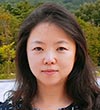 |
Kyong Park
Yeungnam University, Korea |
| 09:40-10:00 |
Cardiovascular Effect of Garlic and/or Tomato Consumption When High Fat/Sucrose Loading Test was Applied in Human  |
 |
Ji Yeon Kim
Seoul National University, Korea |
| 10:00-10:20 |
Alternative Sugar Consumption: Its Effect on Metabolic Changes and Inflammatory Response  |
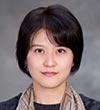 |
Yuri Kim
Ewha Womans University, Korea |
| 10:20-10:30 |
Panel Discussion: Oh Yeon Kim, Hyeon Chang Kim, YoonJu Song, Min-Jeong Shin |
Friday, August 31 (09:00-10:30)
- Grand Ballroom B (3F)
Chairperson : Kwang-Won Kim(GachonUniverstiy, Korea)
Kyung Soo Ko(Inje University, Korea)
Introduction
| Symposium 2. Cross Talk among Major Tissues and Organs / Lipid Metabolism |
|
The topic of this session is about the cross talk among major tissues and organs with lipid metabolism. Prof. Young Min Cho, from Seoul National University, will give a talk about the relationship with Incretin, the intestinal peptides glucagon-like peptide-1 (GLP-1) and lipid metabolism. The second speaker, Kyoung Min Kim, Seoul National University, will discuss bone metabolism in aging process and the association with the atherosclerosis. The third speaker, Da hea Seo, Inha University will talk about the effects of adjuvant hormonal therapy on lipids and atherosclerosis in female patients. The fourth speaker, Kwang-Min Kim, Ajou University will present the changes of the lipid metabolism in along with those of sex hormones (ie. testosterone) in male patients .
|
| 09:00-09:20 |
Incretin and Lipid Metabolism  |
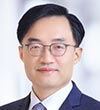 |
Young Min Cho
Seoul National University, Korea |
| 09:20-09:40 |
Bone Metabolism and Atherosclerosis: Interaction between Bone and Vessel in Aging Process  |
 |
Kyoung Min Kim
Seoul National University, Korea |
| 09:40-10:00 |
The Effects of Adjuvant Hormonal Therapy on Lipids and Atherosclerosis  |
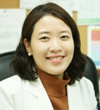 |
Da Hea Seo
Inha University, Korea |
| 10:00-10:20 |
Testosterone and Lipid; Testosterone and CVD |
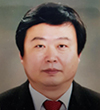 |
Kwang-Min Kim
Ajou University, Korea |
| 10:20-10:30 |
Panel Discussion: Hyun Min Kim, Min Kyong Moon, Jun Sung Moon, Hun-Jun Park |
Friday, August 31 (13:10-14:40)
- Grand Ballroom B (3F)
Chairperson : JeongTaek Woo(Kyung Hee University, Korea)
Kyung-Hyun Cho(Yeungnam University, Korea)
Introduction
| Symposium 3. New Approach in Cardiometabolic Field |
|
This session will provide novel and unique knowledge in the approach for cardiometabolic risk. The first speaker, Prof. Junichi Sadoshima from Rutgers University in USA, will tell us about the role of PPAR alpha dysregulation via GSK-3-mediated phosphorylation on lipotoxicity in the heart in obesity model. The second speaker, Prof. Nathan D. Wong from University of California, USA will give us a comprehensive lecture on the assessment of cardiovascular risk from global risk score to biomarkers and subclinical atherosclerosis. The last speaker, Prof. Satchidananda Panda from Salk Institute, USA will tell us a fascinating story regarding the role of circadian rhythm and regulation on the prevention and treatment of metabolic diseases.
|
| 13:10-13:35 |
Dysregulation of PPARa Mediates Lipotoxicity in the Heart During Obesity Through GSK-3-mediated Phosphorylation  |
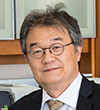 |
Junichi Sadoshima
Rutgers University New Jersey Medical School, USA |
| 13:35-14:00 |
Evaluating Cardiovascular Risk: From Global Risk Scoring to Biomarkers and Subclinical Atherosclerosis  |
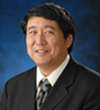 |
Nathan D. Wong
University of California, USA |
| 14:00-14:25 |
Circadian Regulation of Metabolism for the Prevention and Treatment of Metabolic Diseases  |
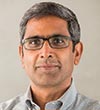 |
Satchidananda Panda
Salk Institute, USA |
| 14:25-14:40 |
Panel Discussion: Hyuk-Sang Kwon, Hack-Lyoung Kim, Ji A Seo, Chan Joo Lee |
Friday, August 31 (13:10-14:40)
- Room C (5F)
Chairperson : Young-Guen Kwon(Yonsei University, Korea)
Dong-Hoon Choi(Yonsei University, Korea)
Introduction
| Symposium 4. Future Therapeutics of ASCVD |
|
Most of cardiovascular diseases are considered to be a kind of atherosclerosis progression. Among them, calcification plays an important role in that process. Until now, there have been no definite suggested mechanism regarding the calcification. Therefore, many treatment strategies have been suggested. The fist speaker, Prof. Hyun-Jai Cho from Seoul National University will talk about the role of newly-identified subpopulation of calcifying stem cells contributing to the vascular calcification. The second speaker, Prof. Bongkun Choi from University of Ulsan will present a novel mechanism of aortic stenosis and the role of DPP-4. The third speaker, Prof. Hyun Kook from Chonnam National University, will show that Histone deaceylase and non-coding RNA play an important role in vascular calcification and their modulating mechanism. The last speaker, Prof. Hyuk-Jae Chang from Yonsei University will present the relationship between atherosclerotic plaque volume measured by CT and statin.
|
| 13:10-13:30 |
Understating of Vascular Calcification: the Role of Stem/Progenitor Cells  |
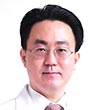 |
Hyun-Jai Cho
Seoul National University, Korea |
| 13:30-13:50 |
Dipeptidyl Peptidase-4 Induces Aortic Valve Calcification by Inhibiting Insulin-Like Growth Factor-1 Signaling in Valvular Interstitial Cells  |
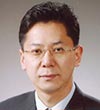 |
Bongkun Choi
University of Ulsan, Korea |
| 13:50-14:10 |
Epigenetic Regulation of Vascular Calcification  |
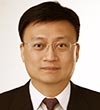 |
Hyun Kook
Chonnam National University, Korea |
| 14:10-14:30 |
Recent Findings and the Significance of Coronary Artery Calcification  |
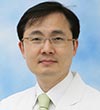 |
Hyuk-Jae Chang
Yonsei University, Korea |
| 14:30-14:40 |
Panel Discussion: Hun-Jun Park, Seung-Pyo Lee, Hyun Duk Jang, Jae-Hoon Choi |
Friday, August 31 (13:10-14:40)
– Room D (5F)
Chairperson : JeongEuy Park(Park JeongEuy Internal Medicine Clinic)
Bon-Kwon Koo(Seoul National University, Korea)
Introduction
| Symposium 5. Imaging-Physiology of Atherosclerosis |
|
Vulnerable plaque, as a atheroma type prone to rupture, is the main mechanism of acute coronary syndrome and sudden cardiac death. This session will provide updated knowledge and help you understanding the diagnosis, prognosis and treatment of unstable lesions. As the first speaker, prof. So-Yeon Choi will show you how to detect vulnerable plaques by in vivo imaging. Professor Ji Hoon Kwon will talk about the evaluation of hemodynamic stress that is an offensive factor of atherosclerotic progression. The lecture of prof. Fumiyuki Otsuka will be focused on the pathological views of vulnerable plaques. In addition, prof. Cheol Whan Lee will tell you how to manage the vulnerable lesions.
|
| 13:10-13:30 |
Vulnerable Plaque Imaging: Grayscale-and VH-IVUS, OCT, NIRS, CT, etc  |
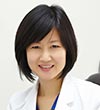 |
So-Yeon Choi
Ajou University, Korea |
| 13:30-13:50 |
Assessment of Hemodynamic Forces Using in Vivo Imaging  |
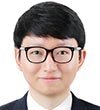 |
Jihoon Kweon
University of Ulsan, Korea |
| 13:50-14:10 |
Update on Vulnerable Coronary Plaque  |
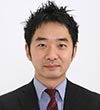 |
Fumiyuki Otsuka
National Cerebral and Cardiovascular Center, Japan |
| 14:10-14:30 |
Treatment of Vulnerable Plaque  |
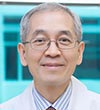 |
Cheol Whan Lee
University of Ulsan, Korea |
| 14:30-14:40 |
Panel Discussion: Soo-Jin Kang, Sang-Rok Lee, Jong-Young Lee, Jin-Ho Choi |
Friday, August 31 (16:20-17:50)
- Grand Ballroom B (3F)
Chairperson : Hak Chul Jang(Seoul National University,
Korea)
Min-Seon Kim(University of Ulsan, Korea)
Introduction
| Symposium 6. Muscle, Exercise and Cardiometabolic Diseases |
|
The muscle plays a major role in maintaining cardio-metabolic health. Sarcopenia is an age-associated loss of muscle mass and strength which is common in older adults and is associated with significant morbidity and mortality. Sarcopenic obesity, which is the combination of sarcopenia and obesity, has rapidly increased and has gained many interest in the recent years. In this symposium the first speaker, Prof. Philip Atherton from the University of Nottingnham will highlight the impacts of exercise on health as a function of ageing. The next speaker, Prof. Tae-Nyun Kim will talk about the implications of sarcopenia and sarcopenic obesity on cardiometabolic disease. The third speaker, Prof. In Deok Kong will present recent work about the role of circulating irisin levels as a predictive biomarker for sarcopenia. The last speaker, Prof. Wook Song will present work regarding the impact of exercise on skeletal muscle in health and metabolic diseases.
|
| 16:20-16:40 |
Impacts of Exercise/Nutrition on Skeletal Muscle and its Microvasculature in Relation to Ageing  |
 |
Philip Atherton
University of Nottingham, UK |
| 16:40-17:00 |
The Implications of Sarcopenic Obesity on Cardiometabolic Disease  |
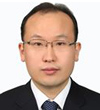 |
Tae-Nyun Kim
Inje University, Korea |
| 17:00-17:20 |
Circulating Irisin Levels as a Predictive Biomarker for Sarcopenia  |
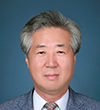 |
In Deok Kong
Yonsei University, Korea |
| 17:20-17:40 |
Impact of Exercise on Skeletal Muscle in Health and Metabolic Diseases  |
 |
Wook Song
Seoul National University, Korea |
| 17:40-17:50 |
Panel Discussion: Hyo-Bum Kwak, So Hun Kim, Hae Jin Kim, Ji Cheol Bae |
Friday, August 31 (16:20-17:50)
– Room C (5F)
Chairperson : Moonsuk Nam(Inha University, Korea)
Yonsu Kim(Seoul National University, Korea)
Introduction
| Symposium 7. Lipid and Kidney |
|
Chronic kidney disease (CKD) is one the risk factors for cardiovascular disease (CVD), and dyslipidemia might be a major contributor to the large burden of atherosclerotic CVD in the CKD population. However, there is a paradoxical relationship between cholesterol levels and mortality in advanced CKD patients, especially dialysis patients. In this session, the main topics are related with different patho-biologic features in CKD patients compared to those in general population. Prof. Jwa-Kyung Kim from Hallym University will talk about the lipid abnormality and prognosis in CKD: epidemiologic view. The second speaker, Mi Jung Lee from CHA University will discuss the current therapeutic guidelines of lipid management in CKD Population. The third speaker, Christoph Wanner from Würzburg University Hospital, Germany as a world-renowned, one of the famous experts in nephrology, who were a principal investigator of 4D trial and Empa-Reg study, will give a lecture about recent updates about lipid management in CKD patients. The fourth speaker, Jin Joo Cha from Korea University will present the role of lipid accumulation in renal injury: basic study.
|
| 16:20-16:40 |
Lipids in Coronary Kidney Disease: From Epidemiology to Therapeutics |
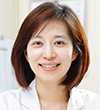 |
Jwa-Kyung Kim
Hallym University, Korea |
| 16:40-17:00 |
Current Therapeutic Guidelines of Lipid Management in CKD Population  |
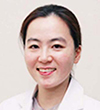 |
Mi Jung Lee
CHA University, Korea |
| 17:00-17:20 |
New Therapeutic Options of Lipid Management in CKD  |
 |
Christoph Wanner
University of Würzburg, Germany |
| 17:20-17:40 |
Role of Lipid Accumulation in Renal Injury: Basic Study  |
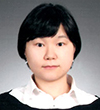 |
Jin Joo Cha
Korea University, Korea |
| 17:40-17:50 |
Panel Discussion: Tae Hyun Yoo, Tae Ik Chang, Dae-Ryong Cha, Su-Yeon Choi |
Friday, August 31 (16:20-17:50)
– Room D (5F)
Chairperson : Sang Hong Baek(The Catholic University of Korea, Korea)
Sung-Rae Kim(The Catholic University of Korea, Korea)
Introduction
| Symposium 8. Health Policy for Prevention and Management of ASCVD |
|
There is a clear relationship between dyslipidemia and the risk of cardiovascular disease. Thus, it is essential that, together with other risk factors, lipid profiles should be measured at regular intervals to determine an individual risk of stroke or heart disease and hence decide whether or not statin should be prescribed. In this session, three prominent speakers will give lectures about strategies for monitoring lipid levels in patients at risk cardiovascular disease. Prof. Belong Cho, from Seoul National University, will present cost-effective monitoring strategies for dyslipidemia in Korea. Prof. Jaetaek Kim, from Chung-Ang University Hospital will discuss an economic model of lipid monitoring in patients with metabolic syndrome. Dr. Kyungwon Oh, Director of Division of Health and Nutrition Survey in Korea Centers for Disease Control and Prevention will present trends of risk factors for atherosclerotic cardiovascular disease in Korea. Finally, seven panelists will discuss whether biennial or quadrennial monitoring of lipids is better for the primary prevention of cardiovascular disease.
|
| 16:20-16:40 |
Health Check-Up Policy for Dyslipidemia Management  |
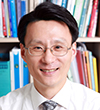 |
Belong Cho
Seoul National University, Korea |
| 16:40-17:00 |
The Role and Responsibility of Health Care Providers in the Management of Metabolic Syndrome  |
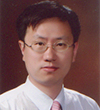 |
Jaetaek Kim
Chung-Ang University, Korea |
| 17:00-17:20 |
Korea National Health and Nutrition Examination Survey, Trends in Risk Factors of Atherosclerotic Cardiovascular Disease (ASCVD)  |
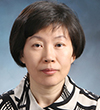 |
Kyungwon Oh
Korea CDC, Korea |
| 17:20-17:50 |
Panel Discussion: Jeong-Min Kim, Jang-Whan Bae, Jae Wook Oh, Kang Hee Lee, Sang Yeub Lee, Eun Jung Rhee, Young-Hyo Lim |
Saturday, September 1 (09:00-10:30)
- Grand Ballroom A (3F)
Chairperson : Youngmi Kim(Kyung Hee University, Korea)
Goo Taeg Oh(EwhaWomans University, Korea)
Introduction
| Symposium 9. Basic Research: Autophagy in Cardiometabolic Disease |
|
Autophagy is an important regulator of cellular homeostasis of which dysregulation is associated with atherosclerosis, cardiac diseases, metabolic diseases, and diabetes. Prof. Goo Taeg Oh will talk about reactive oxygen species-dependent atherogenic signaling in endothelial cells, macrophages, and vascular smooth muscle cells, and roles of peroxidases in autophagic flux. The second speaker, Minsuk Kim, will present a possibility that enhanced autophagy could restore lipid metabolism and recover cardiac function in obese mouse models. The third speaker, Myung Shik Lee, found a chemical for enhancing autophagy which can improve glucose profile of obese mouse models. Mitophagy is a mitochondria-specific form of autophagy. The last speaker, Junichi Sadoshima, will discuss the molecular mechanisms of mitopathy distinct from conventional autophagy in stressed cardiac myocytes.
|
| 09:00-09:20 |
The Role of Peroxiredoxins in Autophagy in the Pathogenesis of Atherosclerosis  |
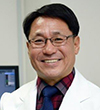 |
Goo Taeg Oh
Ewha Womans University, Korea |
| 09:20-09:40 |
ULK1 Prevents Cardiac Dysfunction in Obesity Through Autophagy-Meditated Regulation of Lipid Metabolism  |
 |
Minsuk Kim
Ewha Womans University, Korea |
| 09:40-10:00 |
Autophagy Enhancer as a Novel Therapeutic Agent against Metabolic Syndrome and Diabetes  |
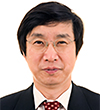 |
Myung-Shik Lee
Yonsei Universty, Korea |
| 10:00-10:20 |
The Molecular Mechanisms of Mitochondrial Degradation in the Stressed Heart  |
 |
Junichi Sadoshima
Rutgers University New Jersey Medical School, USA |
| 10:20-10:30 |
Panel Discussion: Injune Kim, Young Mi Park, Ki-Yuk Chang, Jin Han |
Saturday, September 1 (09:00-10:30)
- Grand Ballroom B (3F)
Chairperson : Hyo-Soo Kim(Seoul National University, Korea)
Sang-Hyun Kim(Seoul National University, Korea)
Saturday, September 1 (13:50-15:20)
- Grand Ballroom B (3F)
Chairperson : Hyun Ho Shin(Cheil General Hospital)
Yong-Jae Kim(EwhaWomans University, Korea)
Introduction
| Symposium 11. Cognitive Impairment: Relevance of Dyslipidemia, Hypertension, Diabetes and Platelets |
|
Dementia is of huge international concern, and currently no intervention can effectively halt or reverse cognitive decline. Vascular risk factors such as hypertension diabetes, and adiposity are independent predictors of Alzheimer's disease. In this session, we have lectures to identify effective interventions to alter the trajectory of cognitive decline and prevent dementia, especially for vascular risk factors. Prof. Jae-Sung Jim, Hallym University, will talk about dyslipidemia and cognitive impairment, including the effects of statin treatment. The second speaker, Hee-Jin Kim, Sungkyunkwan University, will report the complex relationship between hypertension and cognitive impairment, and discuss the results of recent randomized controlled trials of antihypertensive therapy. The third speaker, Yuan-Han, Yang, Kaohsiung Medical University, Taiwan, talk about the early screening of cognitive impairment and the possible benefits from diabetes mellitus treatment to cognition. The last speaker, Seong Hye Choi, Inha University, will present the antiplatelet therapies to prevent delayed-onset post-stroke dementia and progression of vascular cognitive impairment related to cerebral small vessel disease.
|
| 13:50-14:10 |
Dyslipidemia and Cognitive Impairment  |
 |
Jae-Sung Lim
Hallym University, Korea |
| 14:10-14:30 |
Hypertension and Cognitive Impairment  |
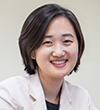 |
Hee Jin Kim
Sungkyunkwan University, Korea |
| 14:30-14:50 |
Diabetes and Cognitive Impairment  |
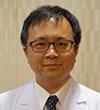 |
Yuan-Han Yang
Kaohsiung Medical University, Taiwan |
| 14:50-15:10 |
Vascular Cognitive Impairment and Cilosazol  |
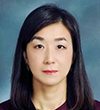 |
Seong Hye Choi
Inha University, Korea |
| 15:10-15:20 |
Panel Discussion: Sungwook Yu, Jun Lee, SungWan Chun, A-Hyun Cho |
Saturday, September 1 (13:50-15:20)
- Room C (3F)
Chairperson : Hong-Seog Seo(Korea University, Korea)
Ick Mo Chung(EwhaWomans University, Korea)
Introduction
| Symposium 12. Vascular Biology and Remodeling |
|
In this session, 4 speakers are ready for lecture on “Vascular biology and remodeling”. The first speaker is Prof. Sungha Park from Yonsei University. He will talk about vascular remodeling in hypertension. He will explain about the associations of vascular remodeling occurred in small and large arteries with the development of hypertension. The second speaker is Prof. Byeong Hwa Jeon from Chungnam National University. He will talk about the role of oxidative stress and inflammation in vascular biology. Notably, he will introduce a novel protein having anti-oxidant and anti-inflammatory effects. The third speaker is Prof. Chen-Huan Chen from National Yang Ming University, Taiwan. He will talk about the impact of arterial calcification on the aortic hemodynamics and cardiac function using data from animal experiments. The last speaker is Prof. Hack-Lyoung Kim from Seoul National University. He will talk about assessment of vascular function. He will point-out the usefulness of noninvasive tools for vascular function in practical point of view.
|
| 13:50-14:10 |
Vascular Remodeling in Hypertension  |
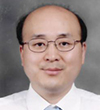 |
Sungha Park
Yonsei University, Korea |
| 14:10-14:30 |
The Functional Roles of APE1/Ref-1 on Vascular Inflammation  |
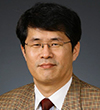 |
Byeong Hwa Jeon
Chungnam University, Korea |
| 14:30-14:50 |
Impacts of Arterial Calcification on Aortic Hemodynamics and Cardiac Function in Rats  |
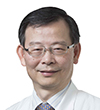 |
Chen-Huan Chen
National Yang Ming University, Taiwan |
| 14:50-15:10 |
Assessment of Vascular Function  |
 |
Hack-Lyoung Kim
Seoul National University, Korea |
| 15:10-15:20 |
Panel Discussion: Kwang-il Kim, Hyun Kuk Kim, Sang-Hyun Ihm, Cheol Woong Choi |
Saturday, September 1 (15:50-17:20)
- Grand Ballroom B (3F)
Chairperson : Do Sun Lim(Korea University, Korea)
Kyung Woo Park(Seoul National University, Korea)
Introduction
| Symposium 13. Thrombosis and Platelet |
|
Thrombotic events in cardiovascular disease have been associated with increasing morbidity and mortality. Pathologic thrombosis plays an essential role in the pathogenesis of acute coronary syndromes (ACS), ischemic complications of percutaneous coronary intervention (PCI), venous thromboembolic disease, and embolic complications of arrhythmias. Prof. Jung-Won Suh, from Seoul National University, Korea, will talk about the role of thrombin beyond platelets in the management of patients with ACS. The second speaker, Kyung Woo Park, from Seoul National University, Korea, will discuss the development of a dedicated ischemia/bleeding risk scoring system for East Asians. The third speaker, Seonghoon Choi, from Hallym University, Korea, will talk about recent NOAC trials in patients with atrial fibrillation undergoing PCI. The last speaker, Woo-Keun Seo, from Sungkyunkwan University, Korea, will talk about clinical outcomes of the Korean patients with atrial fibrillation-associated stroke.
|
| 15:50-16:10 |
Comparison of Two Potent Antithrombotic Regimens in ACS Patients : PLATO vs. ATLAS-TIMI 51  |
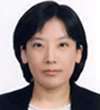 |
Jung-Won Suh
Seoul National University, Korea |
| 16:10-16:30 |
Development of a Dedicated Ischemia/Bleeding Risk Scoring System for East Asians  |
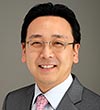 |
Kyung Woo Park
Seoul National University, Korea |
| 16:30-16:50 |
NOACx in Atherosclerotic CV Disease  |
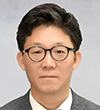 |
Seonghoon Choi
Hallym University, Korea |
| 16:50-17:10 |
Clinical Outcomes of the Patients with Atrial Fibrillation-Associated Stroke: Korean Real World Clinical Data  |
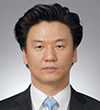 |
Woo-Keun Seo
Sungkyunkwan University, Korea |
| 17:10-17:20 |
Panel Discussion: Jung-Sun Kim, Jae Hyoung Park, Hun-Jun Park, Yun Seok Choi |
Saturday, September 1 (15:50-17:20)
- Room C (5F)
Chairperson : Bong Soo Cha(Yonsei University)
Hyun-Young Park(Korea CDC, Korea)
Introduction
| Symposium 14. Research about Obesity, Lipid and Atherosclerosis in Korea |
|
This session is consisted with a paper, which was initiated and completed research in Korea, about lipid metabolism and atherosclerosis. First speaker, Kihwan Kwon from Ewha Womans University would talk about Fluid shear stress regulates the gene expression in endothelial cells, Second speaker, Jae Hyeon Kim from Sungkyunkwan University would talk about Elevated serum uric acid and coronary artery calcification. Third speaker, Sung Nim Han from Seoul National University would talk about Effects of Mild Calorie Restriction on Lipid Metabolism and Inflammation. Fourth speaker, Sang Youl Rhee from Kyung Hee University would talk about Unrevealed players that affect metabolic diseases: Environmental factors. Fifth speaker, Kyung-Hyun Cho from Yeungnam University, would talk about Blood pressure lowering effect of policosanol via Enhancement of HDL quality and functions. The last speaker, Sang-Hak Lee from Yonsei University would talk about Current Hurdle and Future Solution of Research on Lipid and Atherosclerosis in Korea
|
| 15:50-16:03 |
Fluid Shear Stress Regulates the Expression of Lectin-like Oxidized Low Density Lipoprotein Receptor-1 via KLF2-AP-1 Pathway Depending on its Intensity and Pattern in Endothelial Cells 
|
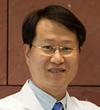 |
Ki Hwan Kwon
Ewha Womans University, Korea |
| 16:03-16:16 |
Elevated Serum Uric Acid Predicts the Development of Moderate Coronary Artery Calcification Independent of Conventional Cardiovascular Risk Factors 
|
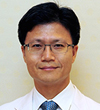 |
Jae Hyeon Kim
Sungkyunkwan University, Korea |
| 16:16-16:29 |
Effects of Mild Caloric Restriction on Lipid Metabolism and Inflammation in Liver and Adipose Tissue  |
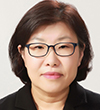 |
Sung Nim Han
Seoul National University, Korea |
| 16:29-16:42 |
Unrevealed Players that Affect Metabolic Diseases: Environmental Factors  |
 |
Sang Youl Rhee
Kyung Hee University, Korea |
| 16:42-16:55 |
Blood Pressure Lowering Effect of Policosanol via Enhancement of HDL Quality and Functions  |
 |
Kyung-Hyun Cho
Yeungnam University, Korea |
| 16:55-17:10 |
Current Huddle and Future Solution of Research about Lipid and Atherosclerosis in Korea  |
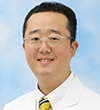 |
Sang-Hak Lee
Yonsei University, Korea |
| 17:10-17:20 |
Panel Discussion: Dong-Bin Kim, Hyun-Jin Kim, Han-Mo Yang, Jun-Hee Lee |


















































































































